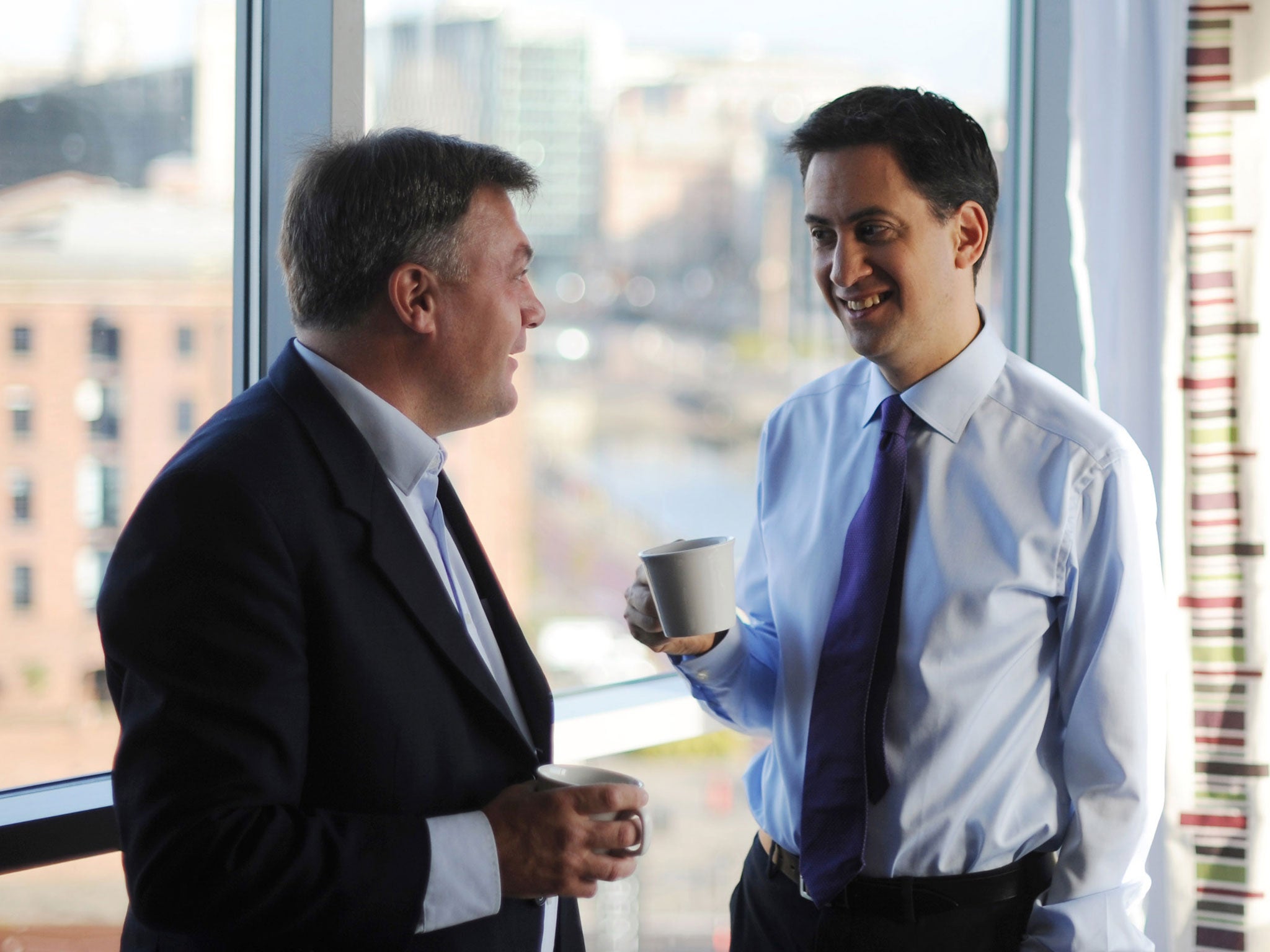Miliband needs to wrest back control of the economic agenda from the Conservatives
He usually comes out fighting and emerges stronger from these squalls


Your support helps us to tell the story
From reproductive rights to climate change to Big Tech, The Independent is on the ground when the story is developing. Whether it's investigating the financials of Elon Musk's pro-Trump PAC or producing our latest documentary, 'The A Word', which shines a light on the American women fighting for reproductive rights, we know how important it is to parse out the facts from the messaging.
At such a critical moment in US history, we need reporters on the ground. Your donation allows us to keep sending journalists to speak to both sides of the story.
The Independent is trusted by Americans across the entire political spectrum. And unlike many other quality news outlets, we choose not to lock Americans out of our reporting and analysis with paywalls. We believe quality journalism should be available to everyone, paid for by those who can afford it.
Your support makes all the difference.For Ed Miliband, the moment of truth approaches. According to senior figures in his own party, the Labour leader has got to stop sitting on the fence and come down on one side or the other.
In his left ear, Jon Cruddas, his policy review chief, whispers that Labour’s offering to the voters must be bold and radical. In his right ear, senior figures including Ed Balls, the shadow Chancellor, and Douglas Alexander, who is in charge of Labour’s general election strategy, advise caution to win economic credibility.
Miliband would dismiss this picture as an inaccurate caricature of the discussion inside his party as its policy review comes to a long-awaited conclusion. But there is no doubt an increasingly heated debate is taking place.
Some close Miliband advisers fear a messy compromise: a radical manifesto but an ultra-cautious election campaign. They say that would be the worst of all worlds, recalling that David Cameron’s 2010 “Big Society” manifesto bombed on the doorstep. Hardly a recipe for success: Cameron should have won an overall majority against Gordon Brown but failed. Miliband’s big idea would be to create “responsible capitalism” and end the political consensus on the economy since the Thatcher era. The trouble is this is not shared by Balls and several others in the Shadow Cabinet.
Miliband is not fazed by the debate raging around him. He believes the discussion reflects a healthy and necessary tension in any opposition party between radicalism and credibility, especially in an age of austerity. But he insists it is a false choice because Labour will need both. That means a commitment to major economic reforms but also to spending cuts and saying precisely how any extra pledges can be afforded.
Nor is the Labour leader worried about the apparent opinion poll boost for the Conservatives since last month’s Budget, which he suspects is fizzling out. However, the mood at Westminster has changed. Tory MPs dare to believe they can win next year’s election, or at least remain in power. Conversely, Labour MPs start to wonder who would become the party’s leader if it loses the election – an ominous sign.
Alexander, also the shadow Foreign Secretary, has become a lightning rod for the criticism of the leadership. He upset Labour MPs at their weekly meeting this week by briefing them on the party’s plans for next month’s local and European elections without taking questions. But Miliband has been impressed with Alexander, believing he has given Labour a more decisive and professional edge.
Labour’s anxious brigade worry that Miliband’s “cost of living” campaign is running out of steam amid signs that wages will start to rise by more than inflation later this year. His answer to the grumblers will be given in an important speech early next week, when he will try to wrest back control of the economic agenda from the Conservatives.
Miliband will insist that his push on living standards is as valid as ever. He will argue that it was never about average earnings and average prices but about wage stagnation dating back to the previous Labour Government and much deeper symptoms of a failing economic system – rewards being grabbed by a few at the top; uncompetitive markets; vested interests; low-prospect, low-skilled, low-paid and insecure jobs and low productivity. These fundamental flaws have not suddenly changed since the Budget, Miliband believes.
The Labour leader will deny the Tories’ claim that his ideas, notably his proposed freeze on energy prices, are a short-term fix while they trumpet their “long-term economic plan” in every soundbite. He believes the Tories’ vision amounts the same old system that existed before the financial crisis – plus a slightly smaller state – while Labour offers long-term change with real reforms to broken markets such as banking and energy. To answer unfair criticism that Labour is a policy-free zone, he will disclose his thinking on how to repair the broken link between national wealth and family finances.
Miliband has been through similar internal squalls before. He usually comes out fighting and emerges stronger, making it look as though his critics have underestimated him. That he needs to do this yet again is a bad sign. Labour needs to do well in next month’s elections in order to halt the momentum that is currently with the re-energised Tories.
Join our commenting forum
Join thought-provoking conversations, follow other Independent readers and see their replies
Comments